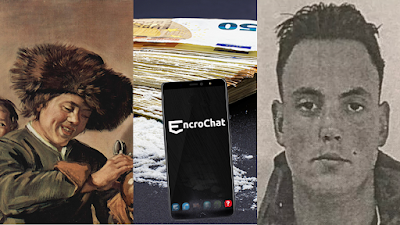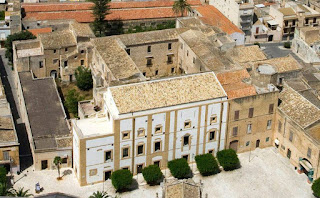 Belgium,cocaine,Flor B.,Flor Bressers,Frans Hals,Organised Crime,Raffaele Imperiale,Stefan Papić,Transnational crime
Belgium,cocaine,Flor B.,Flor Bressers,Frans Hals,Organised Crime,Raffaele Imperiale,Stefan Papić,Transnational crime
 No comments
No comments
Bosnian-Dutch Suspect in Cocaine Trafficking and Art-Linked Money Laundering Extradited from the UAE to the Netherlands
 |
Stefan Papic on Flor Bressers' luxury yacht. |
A Bosnian-Dutch national, accused of playing a key role in a major European cocaine trafficking network and suspected of laundering drug proceeds through the art world, has (finally) been extradited from Dubai to the Netherlands.
Stefan Papić, 30, the owner of Puro Arte, an art gallery registered in both the Netherlands and Sarajevo based in Breda, was arrested in Dubai last year, but until recently his extradition appeared unlikely. He was sought under a Belgian European Arrest Warrant (EAW) in connection with one of the country’s most high-profile organised crime and drug trafficking investigations. Conducted jointly by Belgian and Dutch authorities, that investigation focused on a network accused of importing large quantities of cocaine concealed in manganese ore shipments shipped from South America and routed to Kriva Rochem, an Antwerp-based water purification company.
Dutch and Belgian prosecutors allege that Papić is a close associate and lieutenant of the principal suspect in the Kriva Rochem investigation, Flor "De Lange" Bressers. Bressers is currently on trial with 32 defendants, including Brazilian Sergio Roberto De Carvalho charging them with for participation in a criminal organisation responsible for importing at least 16tonnes of cocaine into Europe. Originally scheduled to begin in October 2024 the complicated case has resulted in multiple delays and heated disagreements between lawyers and the court which has resulted in several motions to recusal.
The Belgian authorities consider Papić, who used the alias 'Max' on Sky ECC, to have been key in the financing, logistics and laundering of money gained from this network's cocaine trade, including via his art gallery in Breda, which is also associated with his family. A search of said gallery, first in 2019 and later in 2020, led to the discovery of links to Edin "Tito" Gačanin, the leader of the Balkan-based Tito and Dino drug cartel named as part of a “super cartel,” run by Gačanin alongside Irish drug kingpin, Daniel Kinahan, Italian mafia boss Raffaele Imperiale, and Dutch-Moroccan trafficker, Ridouan Taghi.
The Kriva Rochem investigation has attracted intense scrutiny from law enforcement across multiple jurisdictions, with prosecutors linking the network to hundreds of millions of euros in narcotics revenue. The case has also implicated the ringleader Bressers in the alleged black-market acquisition of Two Laughing Boys with a Mug of Beer by Dutch Golden Age master Frans Hals, which was stolen on 26 August 2020 from the Hofje van Mevrouw van Aerden Museum in Leerdam.
Papić's gallery in Breda, was searched as part of a multinational police operation looking into the alleged illegal activities and affiliates of Bosnian Dutchman Mirza Gačanin, also a member of the Tito and Dino clan, which was led by his nephew Edin "Tito" Gačanin. Mirza has been cited as having laundering drug profits through the purchase of European real estate, including the commercial property which Papić's gallery occupied in Breda. He was sentenced in absentia to four years in prison in December 2022 and was lature arrested in the Spanish city of Alcante on an Interpol warrant.
If proven in court, the alleged use of Papić’s art gallery as a laundering vehicle exposes both the infiltration of organised crime into the financial flows of cultural goods and the ease with which the legitimate art market can be manipulated to conceal and launder criminal proceeds.
While art crime is often associated with theft and illicit antiquities trafficking, financial investigations into high-value art transactions sometimes illustrate that money laundering is an important vector by which criminal networks can "clean" profits generated from drugs, fraud, or other predicate offences. Given the subjective value of art, this case underscores how galleries, auctions, and private sales can provide convenient cover for lucrative transfers that are otherwise difficult to substantiate.








